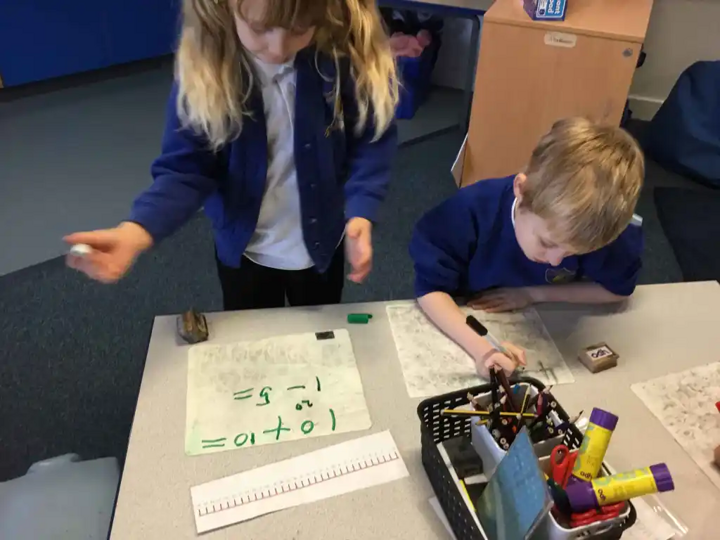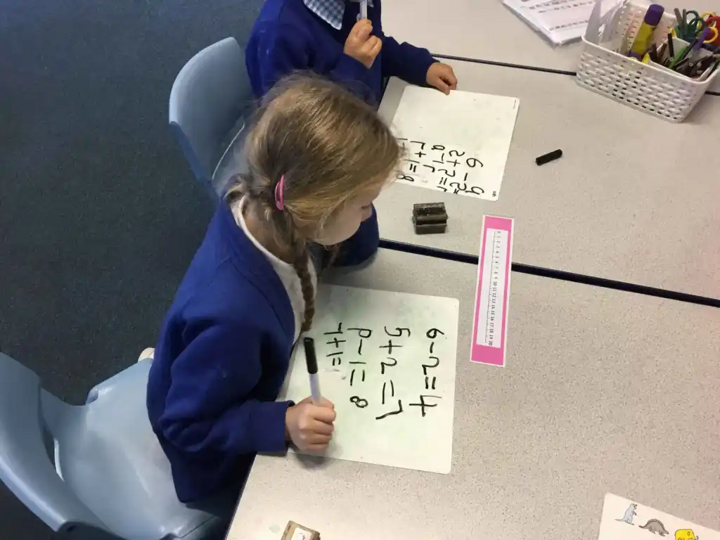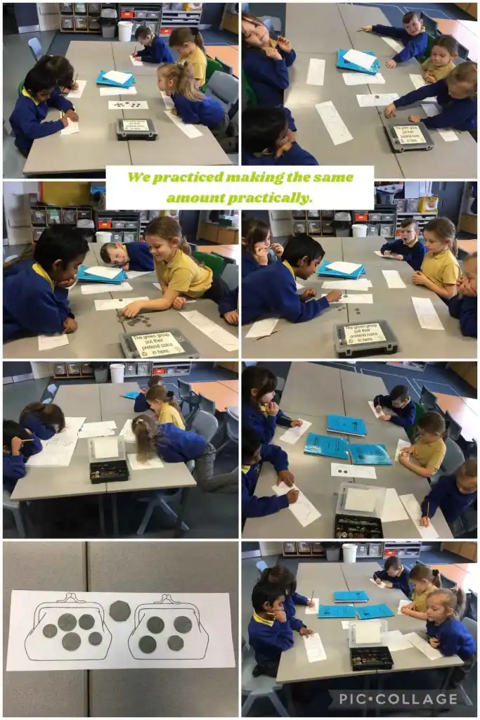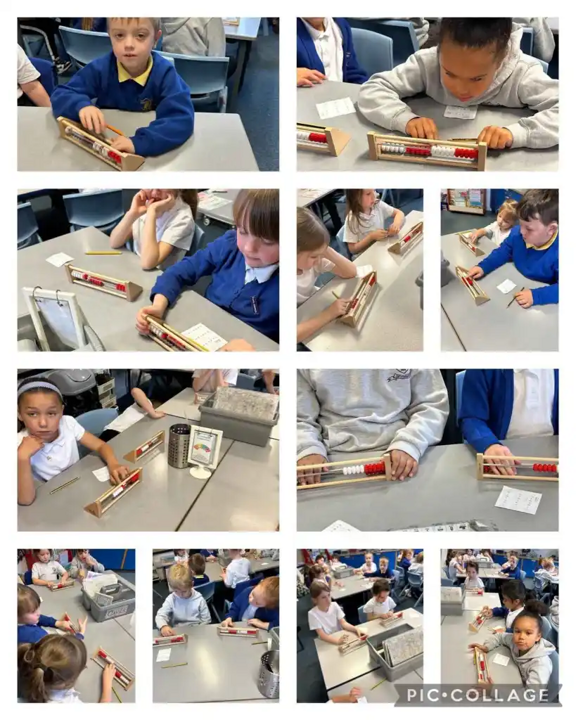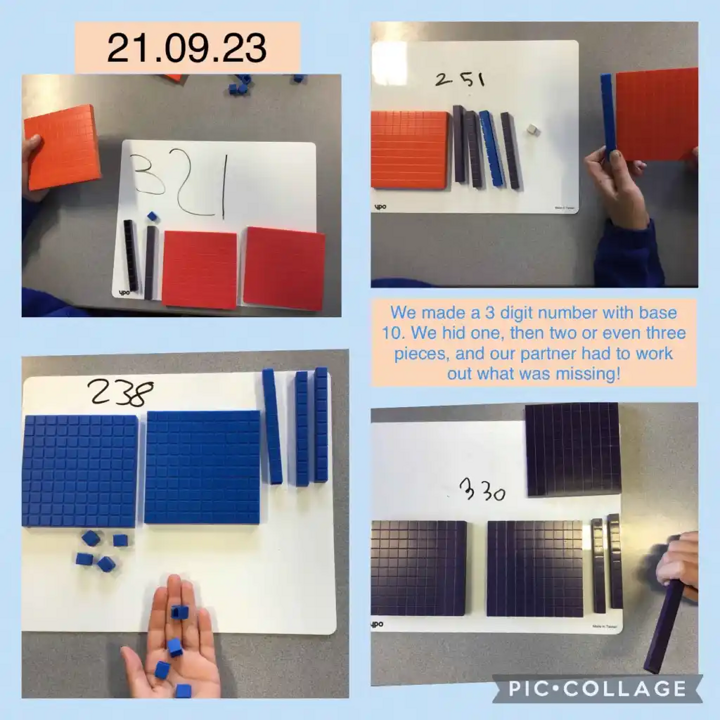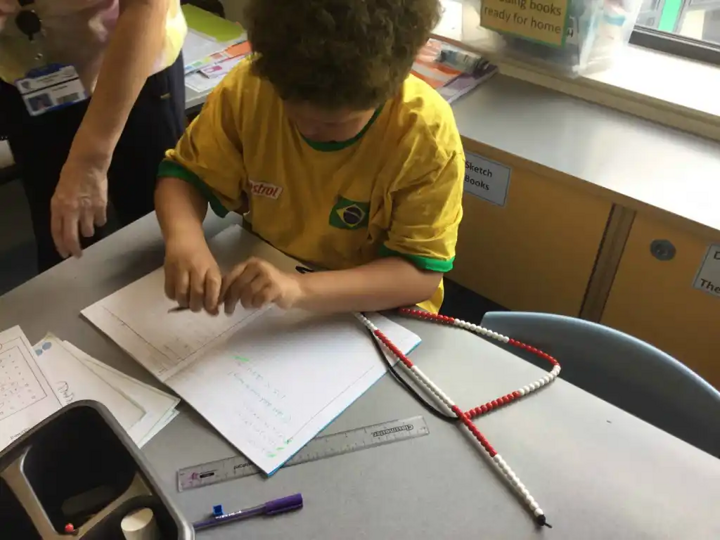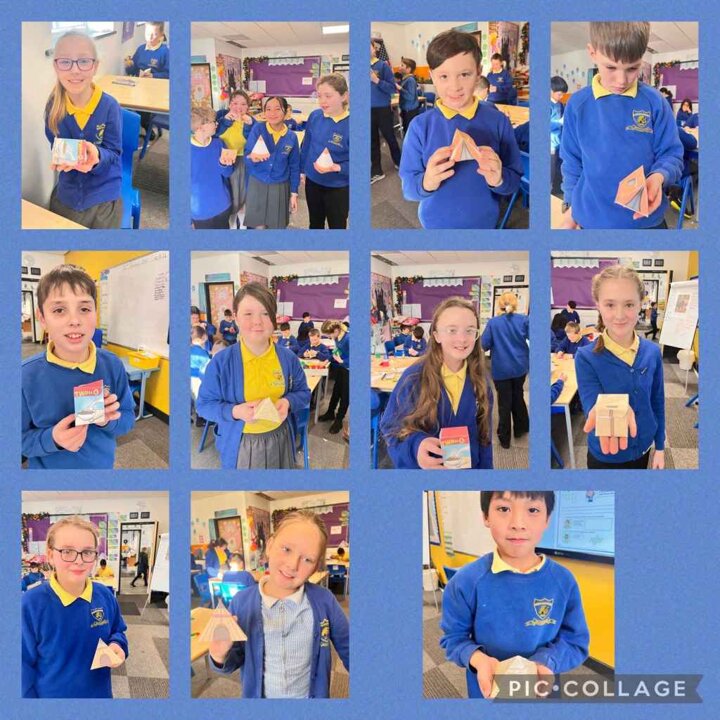
Maths
Devonshire’s Maths Vision
At Devonshire Primary Academy, we value Mathematics. We are MATHEMATICIANS! We want our children to understand that Maths is essential to everyday life: essential to science, technology and engineering, and a necessary life skill. We want our children to grow up with a deep understanding of maths mastery, applying it to their chosen career paths as teachers, scientists, builders, engineers and even astronauts! We value our vision – be the best you can be; using this to guide and influence our learning to becoming the best global citizens. We want our children to leave Devonshire feeling not only confident but with memories of Maths that spark joy and encourage a life-long positive relationship with the subject where mistakes are celebrated.
Intent
Maths at Devonshire Primary Academy is a hybrid programme, taking the very best bits from a selection of resources such as White Rose and the NCETM. Here at Devonshire it is of high importance to ensure that our children have the best possible grounding in mathematics during their time with us. With this in mind, we aim to spark curiosity, build resilience, while installing confidence and knowledge in the children as they embark on their journey to mastering the maths curriculum. Our curriculum is designed to be inclusive for all abilities and needs, providing adaptive teaching, support and challenge as needed.
At Devonshire, Maths is taught discreetly and we are proud to have fostered an environment where Maths is fun and children know it is OK to be ‘wrong’, because the journey to finding an answer is an important learning experience. Our Maths books are packed with a range of activities showing evidence of fluency, reasoning and problem solving and our intent is to teach a broad and balanced curriculum where a rich vocabulary is sequenced from EYFS to Year 6. Our threshold concepts are reviewed daily through mastery lessons that are sequenced in small steps and children can confidently link to lessons to other subjects and know the vast amount of jobs you can do with these skills. Finally, we aim to have high aspirations for ALL children and have these three areas embedded in our Golden Threads:
- Fluency in the fundamentals of mathematics so that pupils develop conceptual understanding, and the ability to recall and apply knowledge rapidly and accurately.
- Reasoning mathematically by following a line of enquiry, conjecturing relationships and generalisations, and developing an argument, justification or proof using mathematical language
- Problem Solving by applying their mathematics to a variety of routine and non-routine problems with increasing sophistication, including breaking down problems into a series of simpler steps and persevering in seeking solutions.
Implementation
Children from Preschool to Year 6 follow the mastery approach to teaching mathematics and are supported by The White Rose Programme. This is complimented with other resources such as NCETM, Oak Academy, Third Space Learning and many more. We are currently on a Mastery journey working closely with the Maths Hub and NCETM to provide the knowledge and skills all children and adults need to ensure the very best outcomes for our school.
From EYFS to Year 2 we also have a focus on Maths Mastery of Number.
Mathematics teaching for mastery assumes everyone can learn and enjoy mathematics.
- Mathematical learning behaviours are developed such that pupils focus and engage fully as learners who reason and seek to make connections.
- Teachers continually develop their specialist knowledge for teaching mathematics, working collaboratively to refine and improve their teaching.
- Curriculum design ensures a coherent and detailed sequence of essential content to support sustained progression over time.
Our lessons are carefully planned to ensure all can access the new learning and identifies carefully sequenced steps in progression to build secure understanding.
All of our resources follow an exciting growth mind set and problem-solving approach. All children are encouraged to believe in their ability to master maths and are empowered to succeed through curiosity and persistence, while tackling the same concepts at the same time and progressing together as a whole class. The ‘small step approach’ allows children to keep up not catch up.
For example: At least three times a week we start our Maths lessons with retrieving previous knowledge and skills. This is a series of quick questions covering something from the previous lesson, last week and then topics from earlier in the year – maybe even last year! This encourages children to constantly refer back to their previously learnt knowledge and skills, ensuring multiple opportunities to look at topics again in new contexts. This enables teachers to support students who have struggled with a topic to spend more time reconsidering and developing their understanding, as well as identifying any ‘problem’ areas and the children can ‘Know More, Remember More’. Once a week we will also complete a number talk using a variety of images including, food, shapes and even house hold items. The children’s discussions allow them to be creative and critical thinkers whilst also building up reasoning skills in a fun way and showing off what they know.
Also, within each unit that is covered, the ‘concrete – pictorial – abstract’ approach to mastery maths is used.
Each class uses manipulatives to start their focus unit. The use of manipulatives allows children to have a tangible link to their learning.
The use of pictorial representations enables children to understand how the focus maths skills can be represented in a number of different ways – mastering the small steps to learning and ensuring the learning is not just ‘discrete’.
From this process, children are then able to approach the maths in a more abstract problem but, by using their previous knowledge and skills, can apply the small steps to understanding and solving the problem.
Maths in the Early Years
Mathematics is one of the specific areas in the EYFS. At Devonshire, we recognise that maths is an integral part of day to day life and we instil mathematical concepts in our direct teaching and in child initiated play. We also thread mathematics through our daily classroom routines. We want our children to not only develop a love of maths but also have the opportunity to learn practical skills through real life application.
For example, each day we count at every possible opportunity. We count how many children are present, when lining up, counting out milk and fruit, recording the date and counting out the story votes. We look at concepts of sharing, more/ less, size and measurement at every available opportunity and carefully promote that all adults reinforce and strengthen children’s knowledge and we always refer to time, days of the week and love using a rich vocabulary set from working alongside Mastery of Number.
Our mathematics curriculum is based on Mastery of Number and (White Rose and number blocks elements – Preschool) and elements of White Rose in Reception. Maths is recorded via photographs and assessments are based on teacher knowledge of the child. The two main areas of focus are Number and Numerical Patterns. We will also practically explore the concepts of pattern, shape and measurement.
In both Preschool and Reception children take part in adult directed and child initiated mathematics. It is important children are given the opportunity to learn maths through practical, active, hands-on experiences. We implement this approach into our focused lessons and our learning landscape areas. After learning new concepts, children are given opportunities inside and outside the classroom to apply their understanding through challenges and enhancements to best support our children to internalise and master their learning.
Impact
- Pupils understand and remember the mathematical knowledge, concepts and procedures appropriate for their starting points.
- Devonshire’s curriculum planning for Mathematics is carefully sequenced so that the knowledge, concepts and procedures a child learns builds on their previous knowledge;
- Devonshire’s Mathematics curriculum divides each new element into manageable steps.
- Pupils are given the opportunity to make useful connections between Mathematical reasoning and problem solving to the ‘real world’.
- Our maths curriculum allows teachers and pupils alike to embed learned knowledge, concepts and procedures to their Long Term Memory by repeating, consolidating and retrieving.
- Devonshire’s Mathematics curriculum identifies gaps in pupils’ Mathematical knowledge through adaptive teaching and carefully planned questioning.
- All teachers have sufficient Mathematical and teaching content knowledge to deliver topics effectively and have been given considerable amounts of CPD through insets, twilights, staff meetings and 1:1 planning and marking workshops with the Maths Subject Lead.
Times Tables
At Devonshire, the systematic teaching of times-tables ensures that children develop rapid recall, which they can use as a tool to effectively and efficiently solve more complex problems. This is carried out, daily, in the form of our Times Tables Booklets, games and using the NCETM resources where the children gain certificates for their progression from the Times Tables Rock Stars website. This includes: in house weekly competitions where the class who have improved will win a TTRS Trophy for the week, challenge schools within the Trust and nationally, across phases and classes. Our aim at Devonshire is that all children, by the end of Year 4, develop fluency and accuracy in all their times tables as per the National Curriculum. Knowledge, fluency and accuracy of the times tables will mean that our children are more confident and efficient at grasping new learning throughout their time at Devonshire such as algebra, area, long multiplication and ratio.
Order of Teaching
Explicit times table teaching, of approximately 5 minutes per day, will begin in Year 2 (Spring term, when the children have been exposed to multiplication and division) and will run throughout the rest of the children’s time at Devonshire. The ideal time to do this is at the beginning of every Maths Lesson and can be picked up during the day especially when walking up the stairs to the deck.
The times tables will be taught in the following order, to ensure that each new times tables will build upon prior knowledge.
- 1x tables
- 2x tables
- 5 x tables
- 10 x tables
- 3 x tables
- 4 x tables
- 8 x tables
- 6 x tables
- 9 x tables
- 7 x tables
- 11 x tables
- 12 x tables
What will the teaching look like?
Teachers should provide the children with a visual array of the times table they are working on and get the children to name the facts that the array represents. This will also include a weekly fact from TTRS.
Furthermore, all children from EYFS to 6 have access to Times Tables Rock Stars, which is a web-based ability-appropriate times tables and number bonds programme, which children access at home and school. EYFS –Year 6 also have access to Numbots through TTRS where the children can practise and refine their knowledge on their number bonds.
Interventions
Time limited interventions are planned by each class teacher – and delivered by the class teaching assistant – for those children who are working below their expected level of attainment and progress.
These occur at different times throughout the school; however, each child’s individual needs are met and catered for daily through adaptive questioning, maths mastery teaching, Roshenshine’s Principles, daily reviews, quizzes, end of topic assessments and termly assessments. Teachers can spot misconceptions straight away and build on securing knowledge before moving on and then through daily reviews children can build up their long term memory.
What makes a good mathematician?
- A good mathematician has excellent communication skills;
- A good mathematician is resilient;
- A good mathematician is persistent;
- A good mathematician is a critical thinker;
- A good mathematician uses logic to solve a problem;
- A good mathematician is curious;
- A good mathematician is creative; and
- A good mathematician is organised.
Useful Websites
Every year we raise money for the NSPCC by taking part in Number Day. The theme of the day uses maths as a focus. This means that pupils in KS1 and KS2 can dress up using a number theme, called ‘Dress up for Digits’.











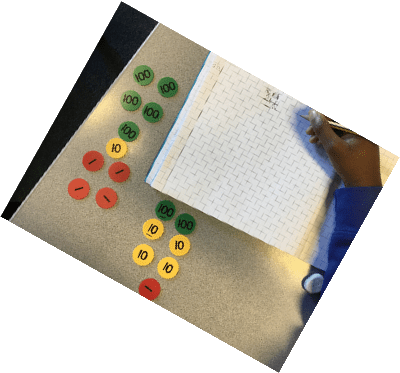

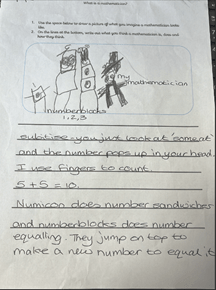
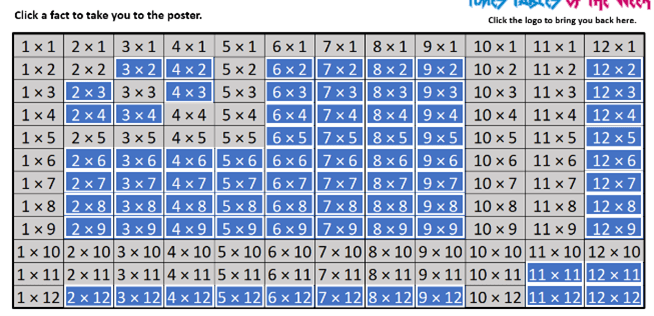
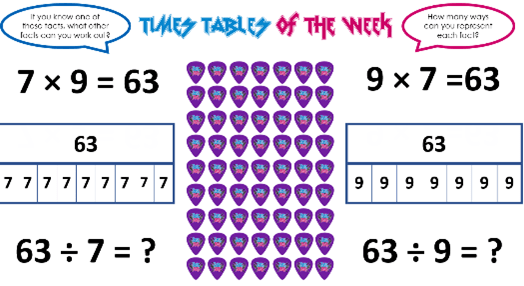
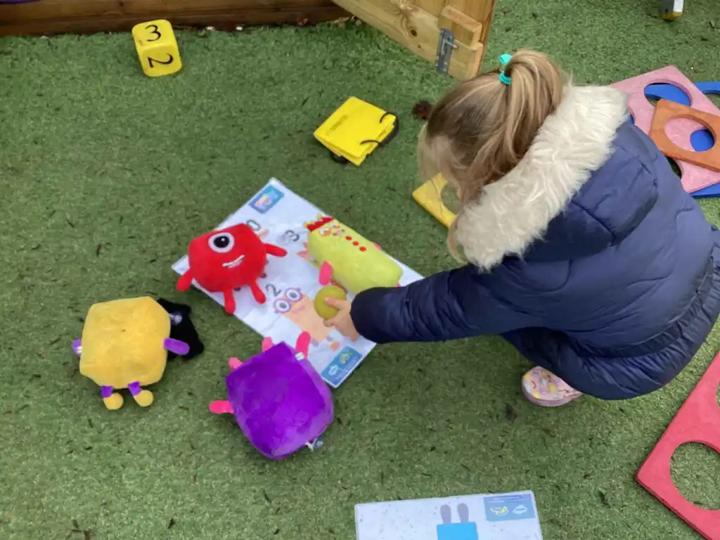
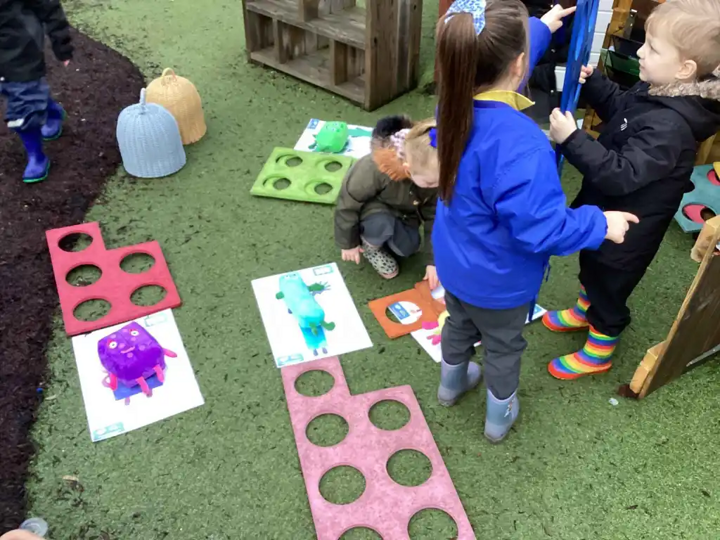
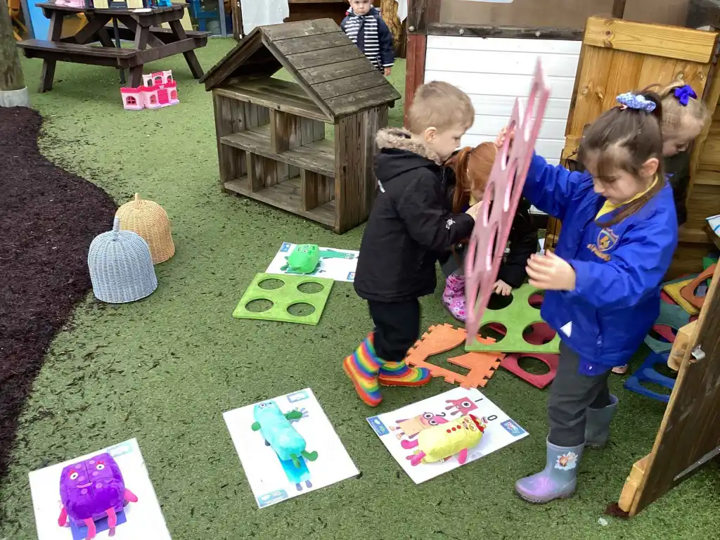
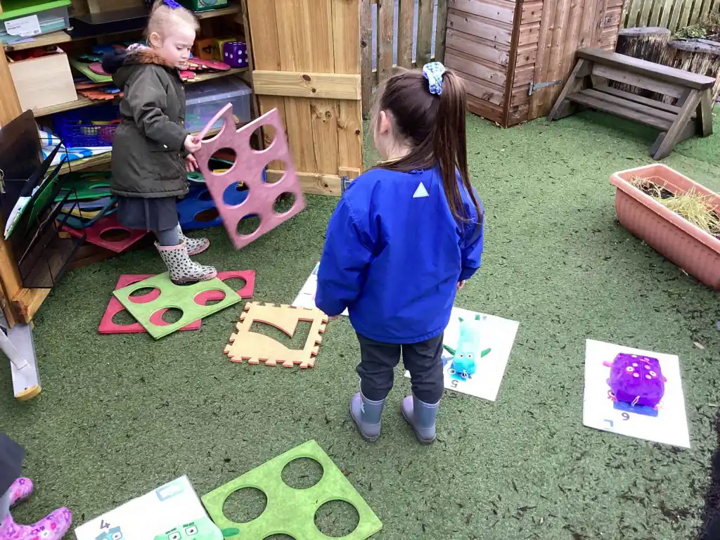

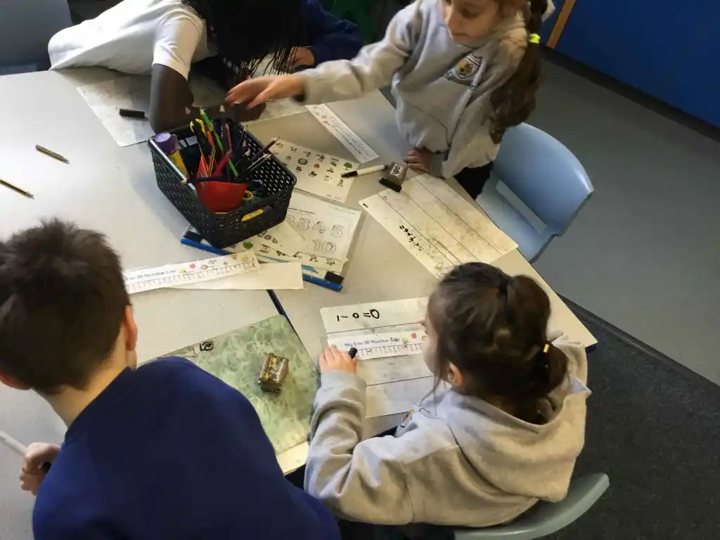
.png)
